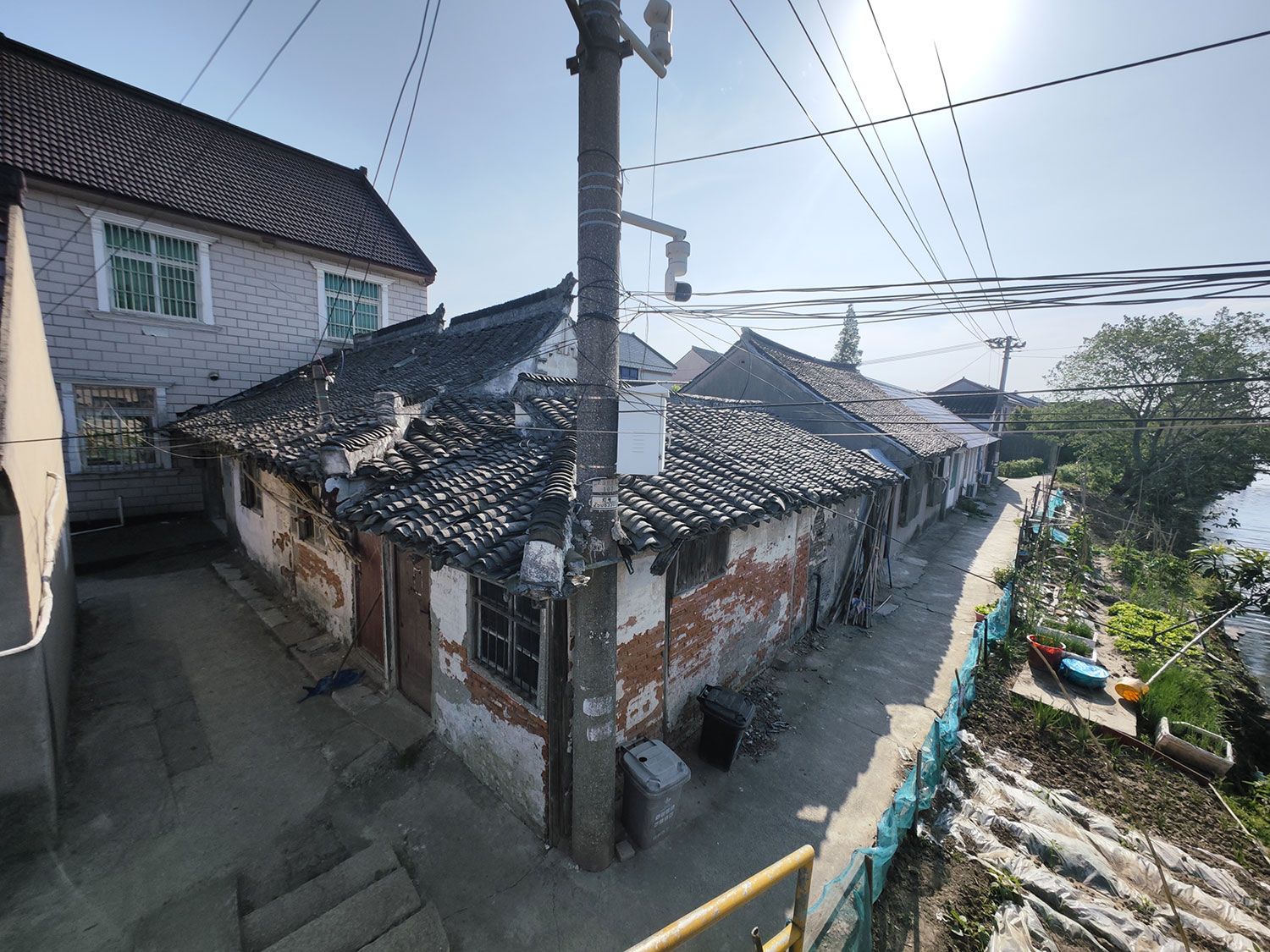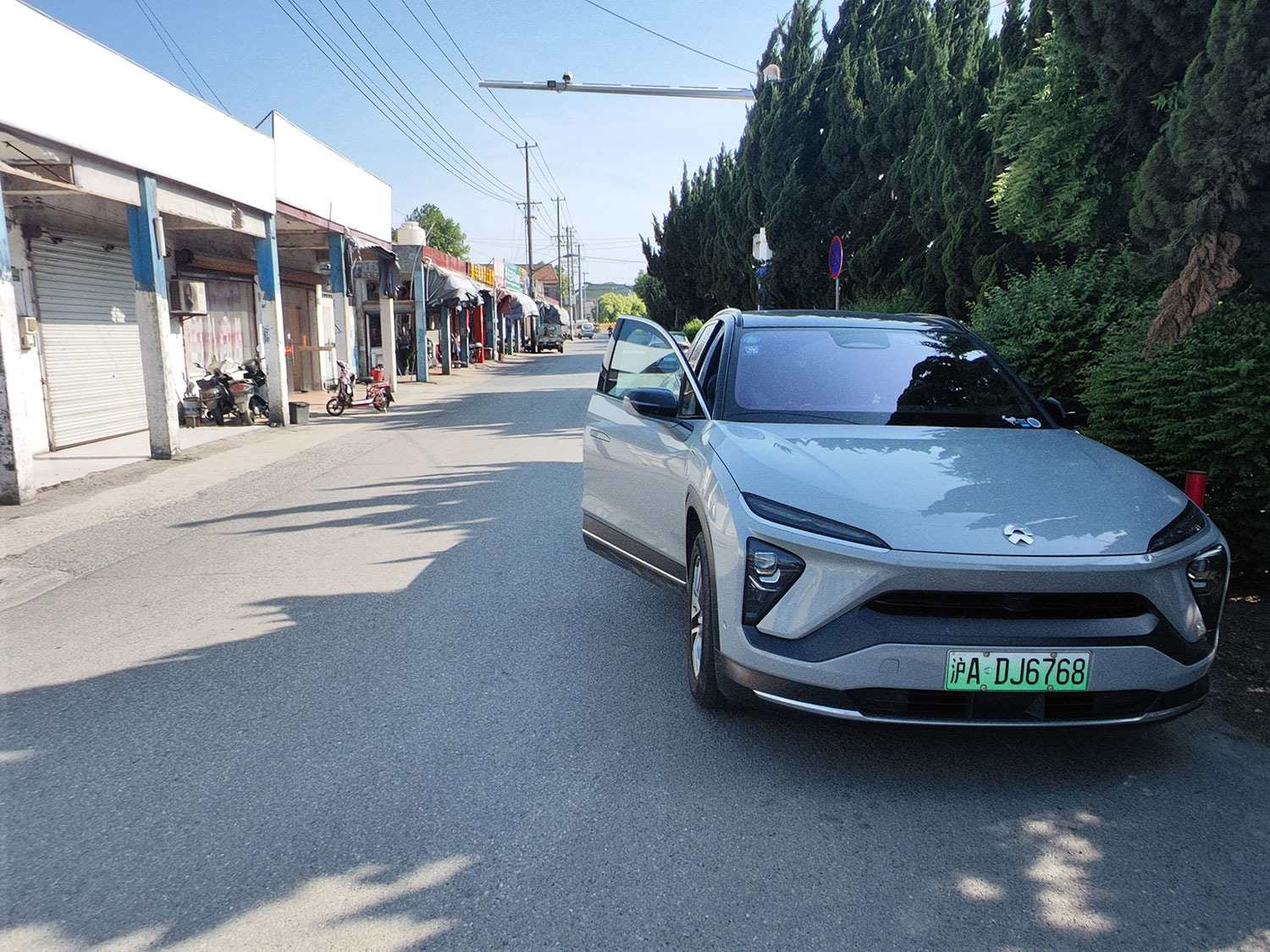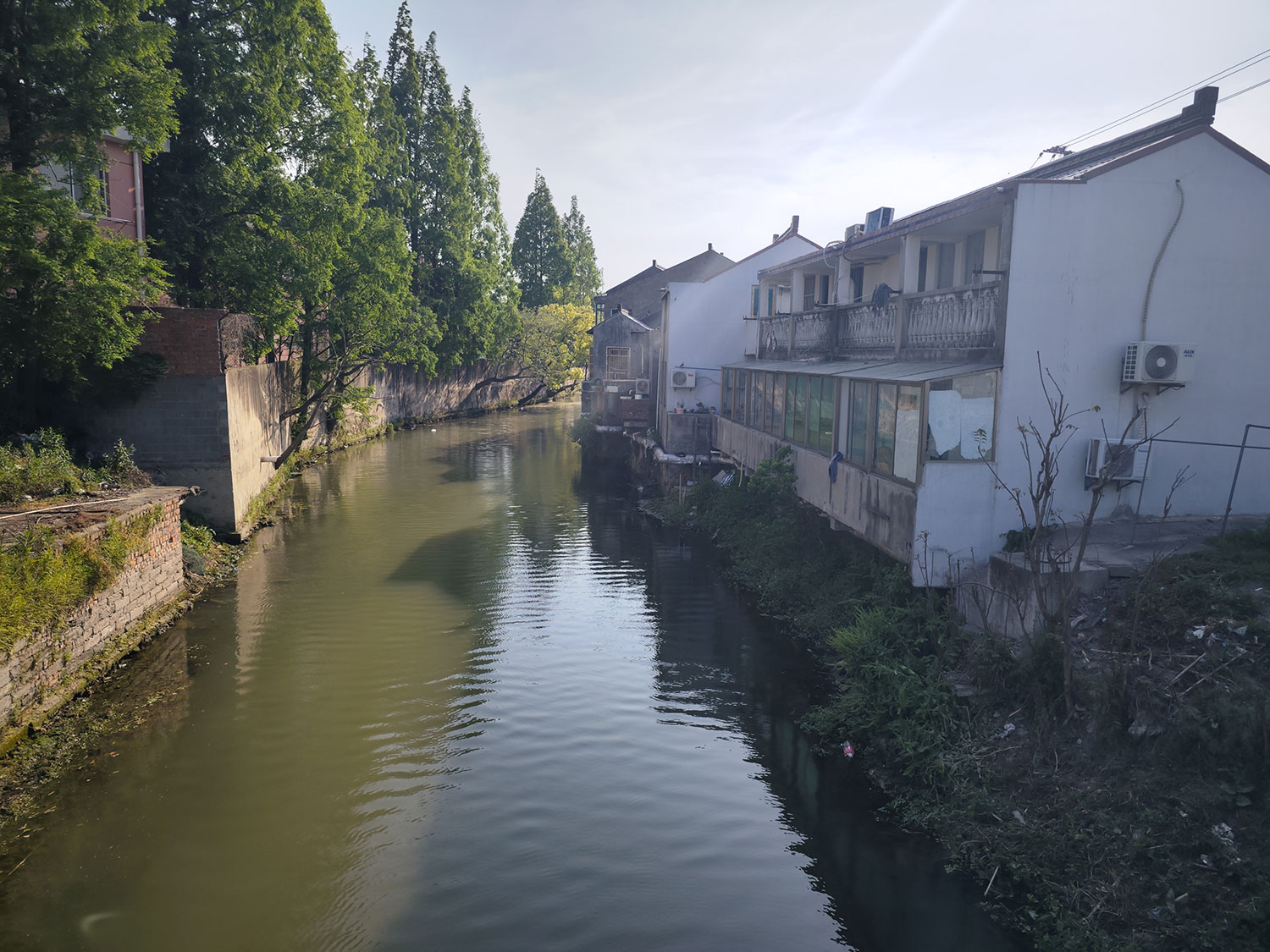A shushu grabs my bag, tries to stop me: “Where are you from?” I’ve no idea where this is going, but I say I’m from the Netherlands, to which the man replies: “Oh, bordering Germany and Belgium. 40,000 square kilometers.” I admit to him that don’t even know that last part. (Later I google it: 41,850km².)




We’re in the old village of Zhelin (柘林镇) in Shanghai’s Fengxian district, after a tip from Ash. Fengxian is so far out of the city that most foreigners have never heard of it. In the Ming Dynasty (1368 to 1644), this town was a favorite of Japanese pirates to loot and steal because the residents had money, plus it was easily accessible by water through the Hangzhou Bay. Being tired of all the looting, the residents built a city wall with three gates & bridges, but these were mostly destroyed after the liberation (1949). Yet we’re curious to have a look.

From the pictures in Ash’s WeChat article, it’s pretty hard to find directions. We find the Stone Lion but there are no old buildings around it. In one of the animated gifs, we can see the street sign of ‘Nongjiao Road (农交路)’ and go there, four kilometers from the lion. And that’s the old city center, yes. This is where we meet the shushu.


The shushu continues: “I love geography, already for sixty years. Russia is the largest country, then Canada, China, United States, Brazil.”
I ask him about the town, and he says most of the old buildings are already away, renovated or rebuilt. I check the WeChat article now, it was actually published three years ago. Shushu says it was horrible. “What was horrible?”, I ask. He doesn’t like this place, and says that his family were landowners and lost everything. Until Deng Xiaoping became the leader of China: “It has improved a lot since then.”
The rickety houses are mostly empty or being rented out to people from other provinces (外地人). But unlike many old towns, it’s more than just seniors living here. Children’s shoes & clothes are drying in the sun as well, but I guess they’re away for the holiday.



This one says ‘General Store (百货店)’, but it’s no longer a store.

The shushu is well dressed, way better than the others here, and yet he carries a sadness. His dislike of the buildings around us, yet his love for the world and far-away names — bottled-up passion waiting for an opening. Would anyone here, except a foreigner, want to have a discussion about geography?
“Normally people from farms don’t know all of this, but I do.”
He has lived through the Cultural Revolution, and I wonder how much he has suffered for all this knowledge.
